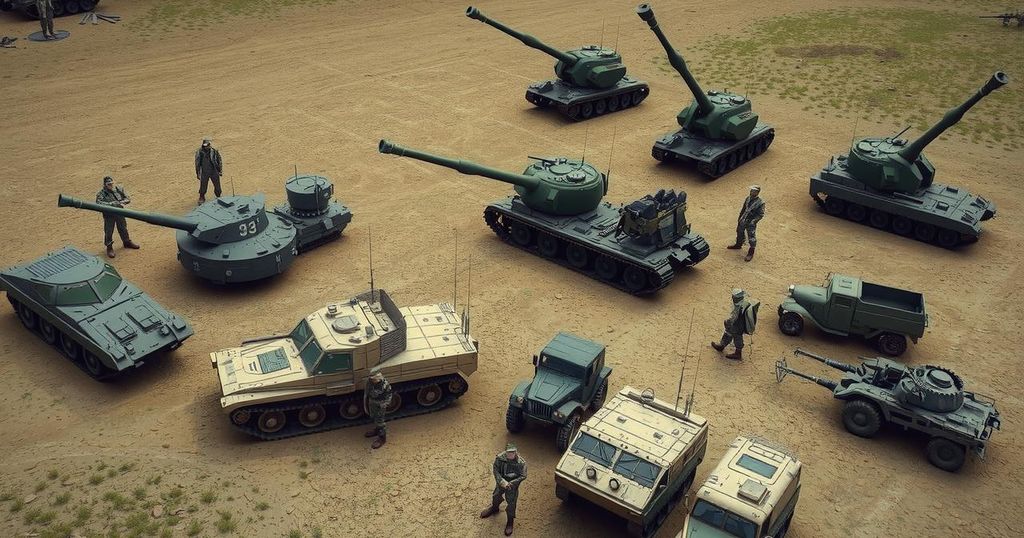Global news
ASIA, BLOOMBERG, BUDANOV, DEFENSE, DONALD TRUMP, DONETSK, ENERGY INFRASTRUCTURE, EUROPE, EUROPE/ASIA, KI, KIM JONG - UN, KIRILL BUDANOV, KOREA, NORTH, MILITARY, MILITARY SUPPORT, NATIONS, PUTIN, PYONGYANG, RUSSIA, RUSSIA-UKRAINE WAR, SERGEI LAVROV, SERGEI SHOIGU, TRUMP, UKRAINE, UNITED, US, VLADIMIR PUTIN, WAR
Isaac Bennett
0 Comments
Ukraine Alarms About North Korean Arms Supply to Russia
- Ukraine’s military intelligence claims North Korea supplies 40% of Russian artillery ammunition.
- Budanov announced 60% of recent military losses in Ukraine stem from North Korean missiles.
- Key military visits highlight Russia and North Korea’s deepening cooperation.
- Last week, Russia launched 728 drones into Ukraine causing significant destruction.
- Trump’s administration is resuming arms deliveries to bolster Ukraine’s defenses.
Ukraine’s Intelligence Chief Talks About Arms Supply Chain
Ukraine’s military intelligence chief, Kirill Budanov, has raised the alarm over escalating cooperation between Russia and North Korea, revealing that North Korean artillery is playing a significant role in the ongoing war. In an interview with Bloomberg, Budanov disclosed that nearly 40 percent of Russian artillery ammunition originates from North Korea. This troubling situation not only includes standard artillery shells, but also extends to ballistic missiles and sophisticated artillery systems, supplied by Kim Jong-un’s regime to aid Russia’s military efforts.
North Korean Weapons Raise Concerns Among Ukrainian Forces
Budanov noted a grim trend regarding the impact of these North Korean missiles. He stated that up to 60 percent of recent military losses in his units can be attributed to these weapons, highlighting their deadly effectiveness on the battlefield. The cooperation between the two nations has significantly intensified following Russian President Vladimir Putin’s trip to Pyongyang last June, which ended a 24-year absence. This visit led to the signing of a Strategic Partnership Agreement that seems to have paved the way for increased military collaboration, including reports of North Korean troops assisting Russian forces in certain regions.
Rising Tensions and International Responses to the Conflict
In the backdrop of this troubling alliance, Russian Foreign Minister Sergei Lavrov was seen visiting Pyongyang on Friday, alongside a series of trips by Putin’s security adviser, Sergei Shoigu, who visited for the third time in three months. This flurry of high-level visits further underscores the deepening ties between the two nations amid rising international isolation for North Korea. Meanwhile, in a concerning update, last week saw a dramatic increase in drone attacks by Russia, with 728 drones launched into Ukraine on just one day. In response to this growing threat, President Donald Trump has ordered a resumption of arms deliveries to Ukraine, aiming to bolster key air defense systems.
Prospects for Ceasefire Under Discussion
Budanov remains cautiously optimistic, stating that U.S. support for Ukraine is dependable despite the tumultuous politics surrounding it. He indicated that a ceasefire could potentially be negotiated, but stressed the necessity of involving Ukraine, Russia, and the United States in any such agreement. His belief that peace could come even by the year’s end presents a glimmer of hope amidst ongoing violence. However, he warned that while Russia will not prevail in occupying all of Donbas by year’s end, they aim to establish a strategic buffer zone.
Ukraine’s military intelligence highlights a perilous development in the conflict as North Korean weapons are significantly impacting the war’s dynamics, contributing to high losses on the Ukrainian side. The intertwined fates of Russia and North Korea make international responses crucial, especially as the U.S. attempts to boost Ukraine’s defenses. As talks for a ceasefire begin, uncertainty looms over whether peace can be achieved with the complexities of these alliances.




Post Comment